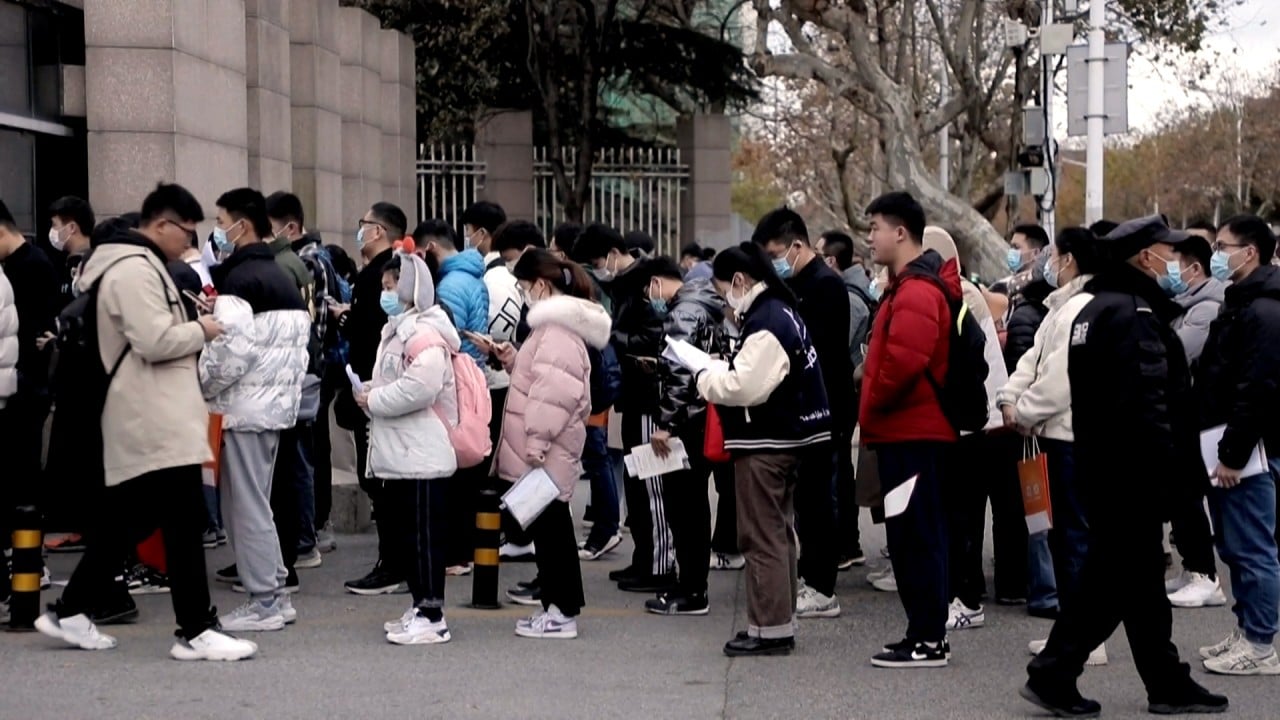
The time is ripe for China to smash the iron rice bowl and trim its bloated state sector
- As China’s economy faces increasing headwinds, it is becoming difficult to justify a massive bureaucratic system
- If China moved to smash the iron rice bowl, it would send a positive message to society as a whole and especially younger people
The actual size of China’s massive bureaucratic system is somewhat hard to pin down. Defined narrowly, there are just around 7 million civil servants in the nation, but if we look at the state’s payroll, the government is estimated to be hiring dozens of millions of people.
Still, the general consensus is that the headcount in the Chinese bureaucratic apparatus, usually defined as government organs financed by public funds, has become too large.
Authorities have repeatedly tried to cut the government payroll over the years. Former premier Zhu Rongji in the 1990s attempted to cut the size of the cabinet while closing incompetent state-owned enterprises. The country also tried to streamline its five-layer governing apparatus into four layers by allowing some counties to report directly to provincial authorities.
However, those efforts did not really stop the state payroll from expanding. With the government playing a crucial role in Chinese society and economy, economic growth and social changes have provided ample reasons to add state jobs. It was simply impossible to downsize the ruling apparatus when it was controlling more resources and shouldering more responsibilities, the reasoning went.
Earlier this year, an indebted province in southwest China asked Beijing for a bailout, and one of the proposed conditions was for the local government to slash public jobs by 20 per cent, according to a report by Chinese magazine Caixin.
While it is hard to imagine such a job cut actually taking place, it is worth noting that the proposal was even tabled.
As land sales in China plunge and economic growth slows, many local governments are struggling to repay debt or even maintain operations.
Affluent coastal regions in the Yangtze River Delta and Pearl River Delta are forcing de facto pay cuts for local cadres by reducing or cancelling subsidies and allowances.
In poorer areas, it has become common to see reports of delayed wage payments for teachers in public schools and medical staff in public hospitals. In more extreme or dangerous cases, anecdotal evidence suggests that some local governments have resorted to questionable tactics, such as aggressively issuing fines to raise government income.
While every local government is part of a centralised system and there is no legal basis or practical steps for a local government to file for bankruptcy, it is still necessary to reduce obvious redundancies when the economy worsens.
Meanwhile, certain social management functions can be streamlined as well. For example, during the three and a half decades that the one-child policy was in force, China built an expansive family-planning enforcement network in every town and county. Most of those roles can now be eliminated as China’s priority has shifted to encouraging births.

If China moved to smash the iron rice bowl, it would send a positive message to society as a whole and particularly the country’s youth.
In contrast, when economic liberalisation was taking off in China in the early 1990s, some young and ambitious civil servants left the bureaucratic system for the unpredictable world of business, and many of them proved to be great entrepreneurs.
The “lying flat” attitude among certain government officials is unhealthy, and people generally do not choose to “lie flat” unless they know it is safe to do so. If China made it clear that incompetent civil servants could be fired just like employees in business enterprises, the situation might change and government efficiency may improve.
A leaner bureaucratic system can, in turn, help China’s development.


